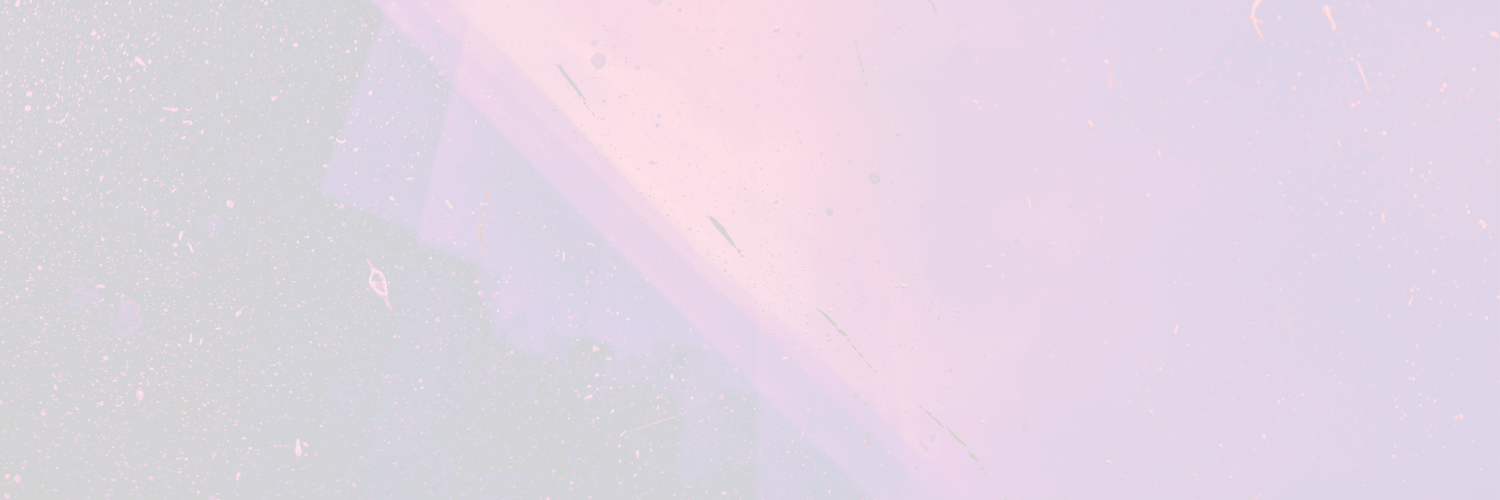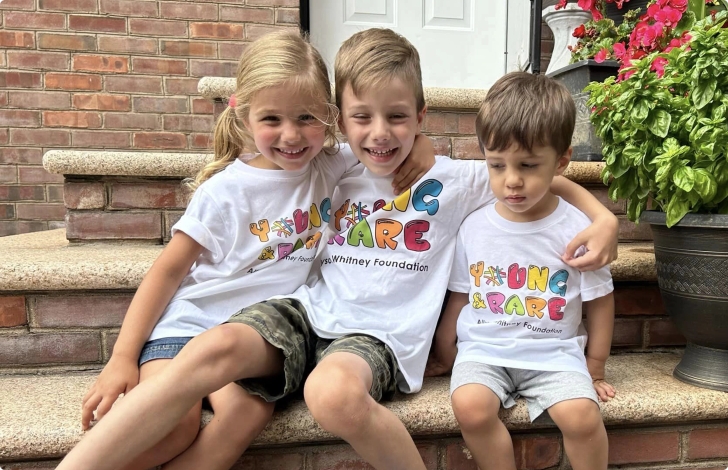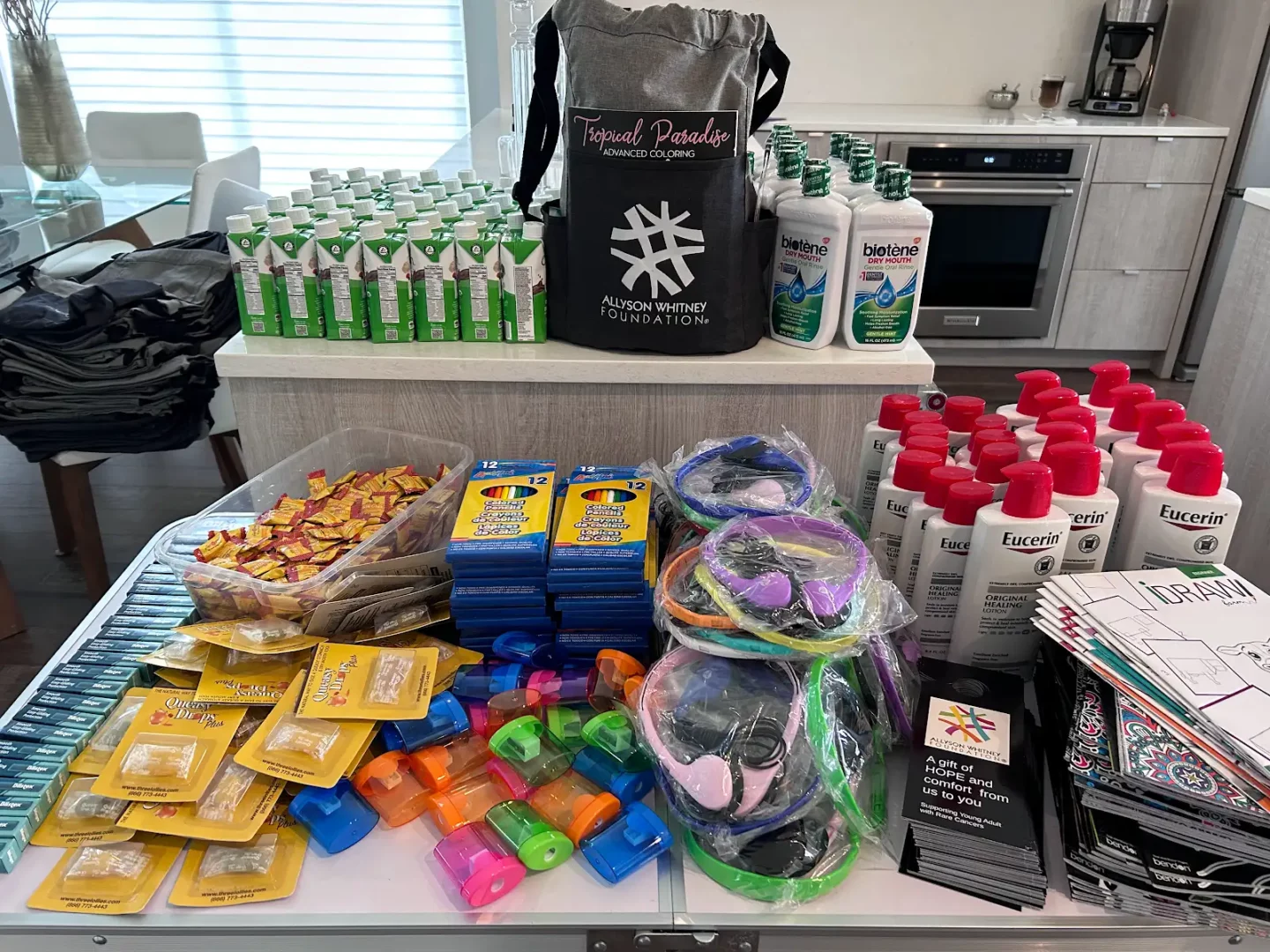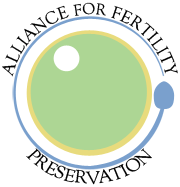OUR WORK
Nurturing Hope,
Defying Odds
Inspired by Ally’s vision, the Allyson Whitney Foundation highlights rare genetic cancers in young adults, focusing on awareness and overcoming challenges like financial hardship and health issues. Since 2012, we’ve grown a supportive community, putting Ally’s legacy at the heart of our mission.


WHAT IS A
Rare Cancer?
Rare cancers like brain, pancreatic, cervical, stomach, thyroid, and ovarian affect fewer than 200,000 people in the U.S. and comprise half of all cancer cases. Yet, these cancers often receive less funding for research, which means fewer treatment options for patients.
Did You
Know?

FACT 1
Rare cancers are those that affect fewer than 40,000 people per year in the U.S. As a group, they make up just over a quarter of all cancers.

FACT 2
In general, there are fewer treatment options for patients with rare cancers because funding for development often lags behind more commercially viable options.

FACT 3
Rare cancers are far more prevalent than the term implies- in fact, more than half of all cancers are classified as “rare”.

FACT 4
Every year 85,900 Adolescents and young adults are diagnosed in the United States.

FACT 5
Despite being the leading cause of death for 15-39-year-olds, over half of AYA cancers have seen no improvement in 5-year survival rates, while children and older adults have seen significant advancements over 30 years.

FACT 6
AYA cancer accounts for more than 6% of all cancer diagnoses each year, 8X as many cases as pediatric cancers and less than 1% of all cancer diagnoses during the same period.

FACT 7
Adolescents and YA have “no medical home” & face barriers at all levels of cancer care & delivery.

FACT 8
It takes an average of 75 days for an AYA to receive a diagnosis. When a diagnosis is delayed, it can result in a cancer that is later-stage and more difficult -to -treat and cure.

FACT 9
Evidence suggests a poor understanding of the biology and etiology of cancers in the young adult population; they have unique genetic & biological features.

FACT 10
Only 5% of 15-39-year-olds see a pediatric specialist, despite the fact that pediatric protocols could improve survival rates. For instance, a tumor may look identical in a child and an adult, yet survival rates differ significantly by age.

FACT 11
There are few guidelines in place specific to AYA cancer care and what does exist varies from program to program.

FACT 12
Cancer patients between 15- and 39 are the least likely to be enrolled in clinical trials, which leads to inadequate collection of patient data.

FACT 13
41% of adolescents and young adults report an unmet counseling need one year after their diagnosis. Research suggests that YAs are 5x more likely to develop PTSD than their healthy peers.

FACT 14
Annual medical expenses for AYA survivors are 2X what a peer without a cancer diagnosis will pay.

FACT 15
Young people ages 15-25 are caught in a medical gray areaThere is a limited focus and there are even fewer resources for the AYA population.

FACT 16
Researchers found that pediatric and adult cancer treatments significantly affect survival rates. A cancer diagnosis doesn’t guarantee fertility benefits, and 50% are never informed treatment could impact fertility.

FACT 17
Follow-up typically ends after 2 years for AYA even though they are at high risk for new & chronic diseases.

FACT 18
A handful of hospitals accommodate Young adults with cancer to their unique psychosocial and supportive care needs.

FACT 19
One in three 15-39-year-old patients will lose insurance coverage due to a transition like job loss.

FACT 20
One in five adolescent and young adult cancer patients have a child under the age of ten.

FACT 21
Most cancers in YA do not have a known cause.

FACT 22
Young adults have limited access to insurance coverage.

FACT 23
Young adults face unique challenges like infertility, relationships, intimacy, insurance, financial aid, career planning, and age-appropriate peer support.


LIFE INTERRUPTED
Grants
The ALLYSON WHITNEY FOUNDATION primarily provides young adult cancer patients (16-36) with ‘Life Interrupted Grants’ to ease their financial burden, so that they can concentrate their energy on healing. To date, we’ve awarded $760,000 in grants, and our meticulous Grant Committee ensures the security and impact of your donation dollars.



ONCOFERTILITY
Support
Oncofertility Support is a vital component of cancer care for young adult patients who may face infertility as a side effect of their cancer treatment. Cancer therapies such as chemotherapy, radiation, and surgery can damage reproductive organs, impacting the ability to have biological children in the future. Oncofertility programs provide tailored guidance and options to preserve fertility before treatment begins. These may include egg, sperm, or embryo freezing, as well as ovarian tissue cryopreservation for women. Support also extends to addressing emotional, psychological, and ethical concerns, as patients navigate the difficult balance between life-saving treatment and the desire to have children later on giving them hope for the future.



HOPE
COMFORT BAGS
Providing essential HOPE Bags to cancer patients in NY, FL and CA. Each bag includes Ally’s favorites for comforting essentials, extending support in the fight against cancer.
Get in touch if you would like to become an AWF Ambassador & deliver by you.
*Hope Bags are packed with soothing products which makes them quite heavy and cannot be shipped. You can order a HOPE logo blanket to send to your loved one in treatment.

Supporting
AWF ALLIES
The ALLYSON WHITNEY FOUNDATION supports several organizations whose missions and values align with ours. These organizations generally focus on researching rare cancers and/or offering care and support to those fighting cancer.






